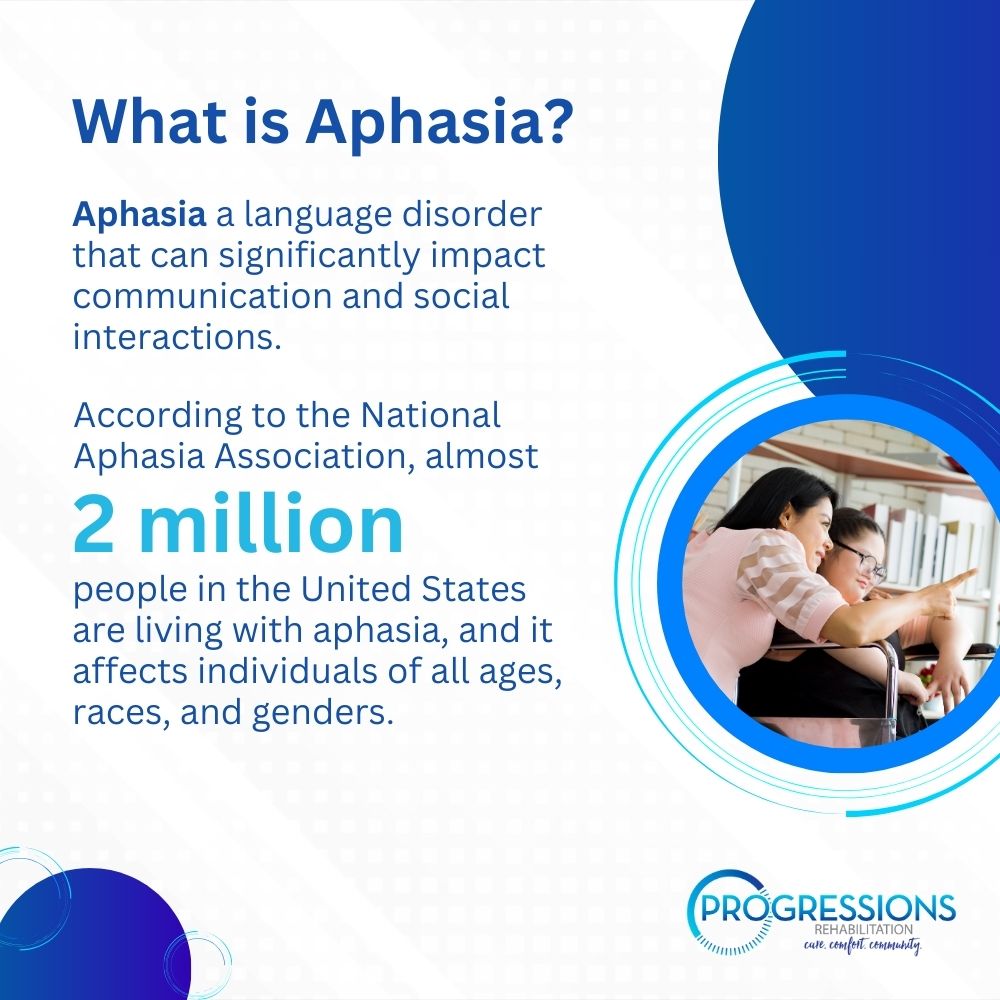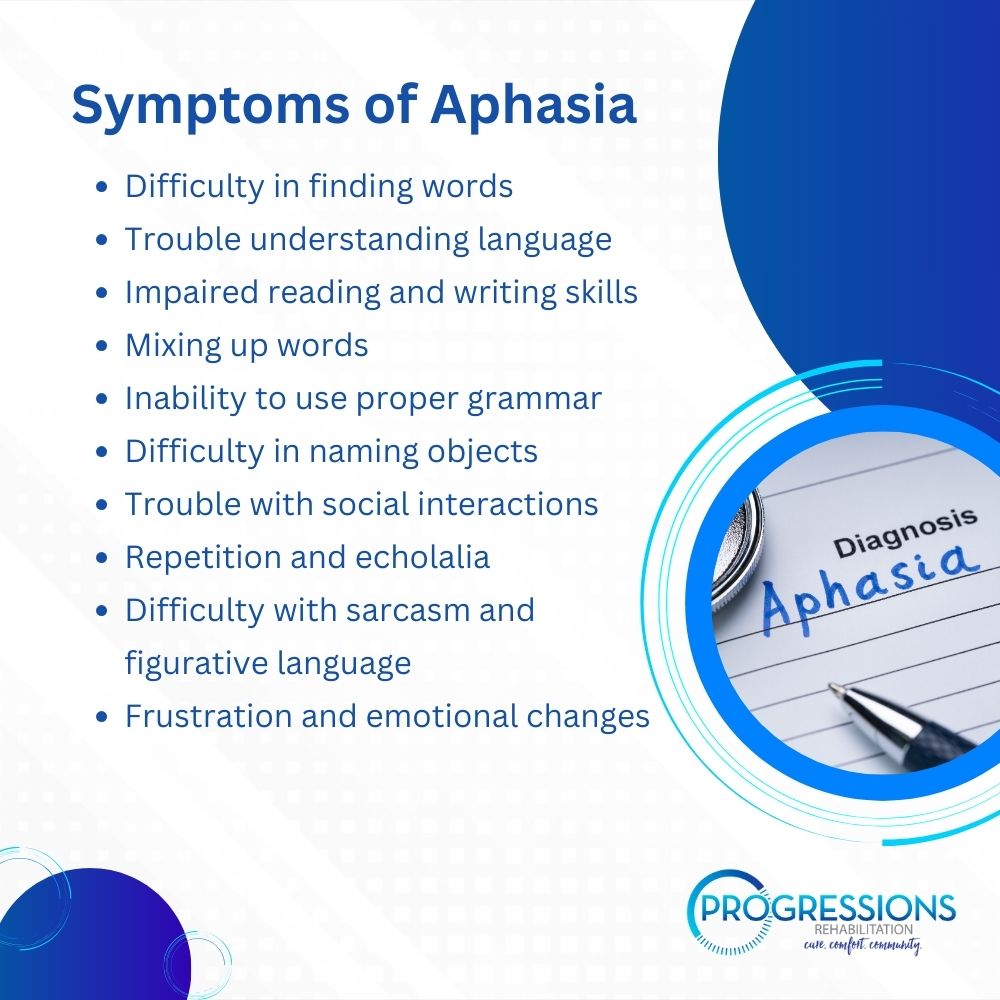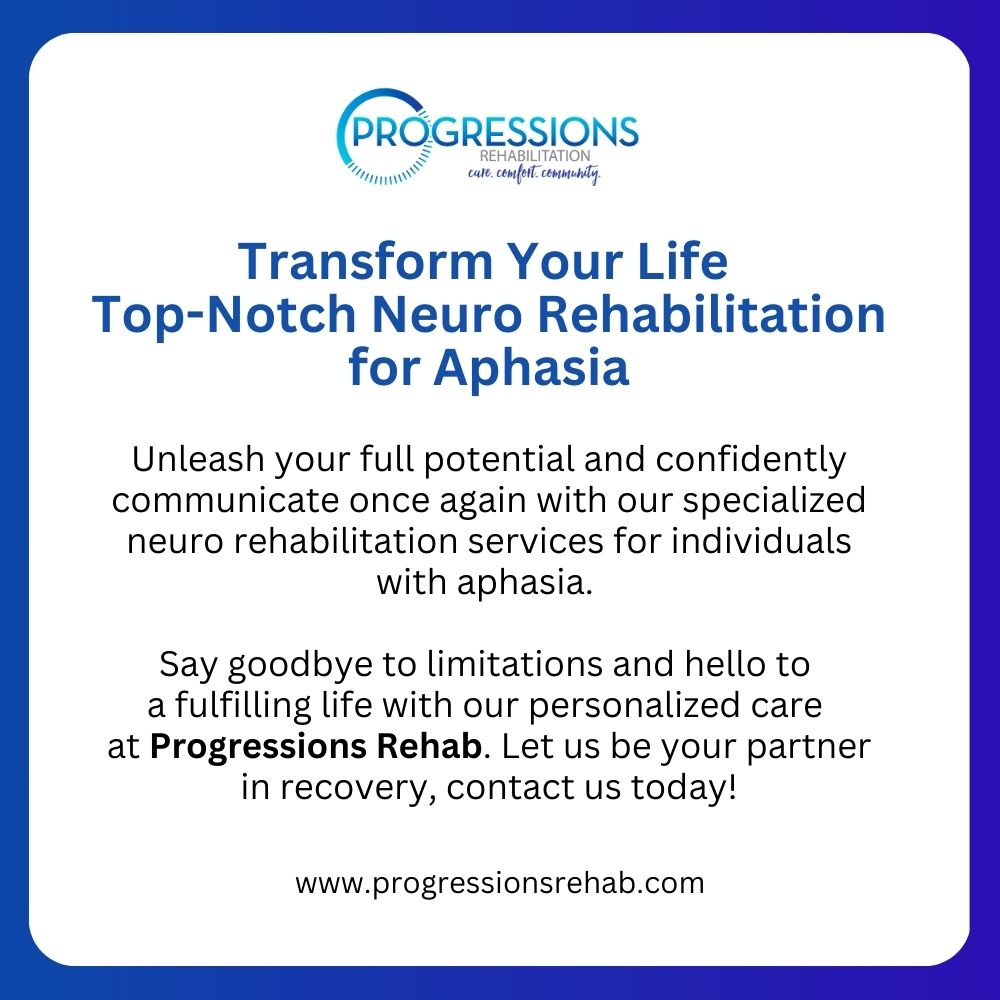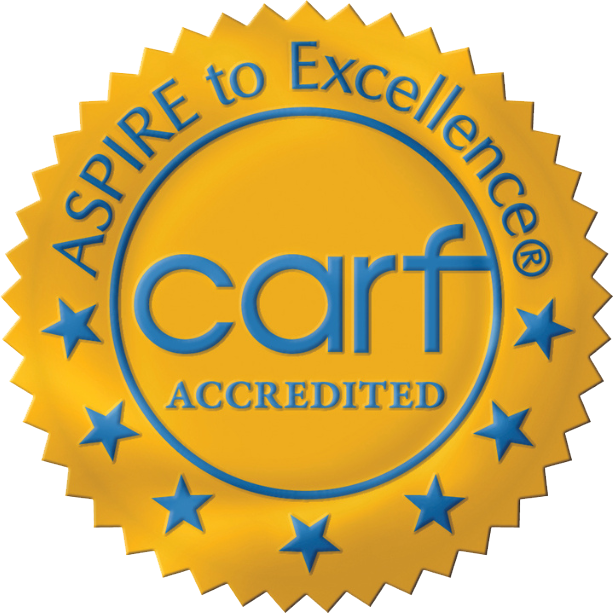Acquired brain injury (ABI) can have life-altering consequences for an individual, affecting their physical, cognitive, and emotional well-being. One of the most common and debilitating effects of ABI is aphasia, a language disorder that can significantly impact communication and social interactions. According to the National Aphasia Association, approximately 25-40% of people who have suffered a stroke develop aphasia, making it a prevalent and critical issue in the rehabilitation process.
In this blog post, we will delve into the causes, symptoms, and treatments of aphasia following ABI and why seeking timely and appropriate intervention is crucial for individuals to regain their ability to communicate effectively. So, let’s learn more about this often undiscussed yet essential aspect of brain injury rehabilitation.

What is Aphasia?
Aphasia is a communication disorder that occurs when there is damage to the language centers in the brain. It can affect all aspects of communication, including speaking, understanding, reading, and writing. This disorder is most commonly seen in individuals who have experienced a stroke, traumatic brain injury, brain tumor, or other forms of ABI
The severity of aphasia can vary widely from person to person, depending on the extent and location of the brain injury. Some individuals may have mild symptoms and still be able to communicate effectively, while others may have severe symptoms and struggle to communicate at all.
According to the National Aphasia Association, almost 2 million people in the United States are living with aphasia, and it affects individuals of all ages, races, and genders. Understanding the different types of aphasia so that appropriate treatment can be received is essential.
Types of Aphasia
While there are various types of aphasia, we will dive deeper into the types that may occur following an ABI.
- Broca’s Aphasia
It is a type of non-fluent aphasia that affects a person’s ability to speak, read, and write. Individuals with Broca’s aphasia have intact comprehension, but they struggle with producing words, often speaking in short, grammatical sentences.
- Wernicke’s Aphasia
Wernicke’s aphasia is a fluent type of aphasia that affects a person’s ability to comprehend and produce meaningful language. Individuals with Wernicke’s aphasia may produce long, grammatically correct sentences that lack meaning and may be unable to understand written and spoken language.
- Global Aphasia
This type of aphasia is the most severe form and affects a person’s ability to speak, understand, read, and write. Individuals with global aphasia may only produce a few words or sounds, have difficulty understanding others, and may be unable to read and write.
- Anomic Aphasia
Anomic aphasia is a type of mild aphasia where individuals have difficulty finding and using the right words to express themselves. It can affect all aspects of language, including speaking, reading, and writing.
- Transcortical Aphasia
Transcortical aphasia occurs when damage is isolated in specific areas of the brain’s language centers, resulting in a mix of symptoms from other types of aphasia. For example, someone with this type of aphasia may have trouble speaking but minimal difficulty understanding language.
- Conduction Aphasia
Conduction aphasia is characterized by difficulty repeating words or phrases, despite being able to understand and express themselves otherwise. Individuals with conduction aphasia may be searching for the right word or phrase but may be able to describe it in other ways.
- Mixed Nonfluent Aphasia
Mixed nonfluent aphasia is a rare form that combines expressive and receptive aphasia symptoms. It can result in difficulty in both producing and understanding language.
Causes of Aphasia
Let’s examine the underlying factors of aphasia after experiencing acquired brain injury and the methods for effectively managing it.
- Stroke
A stroke is the most common cause of aphasia following ABI. It occurs when the blood supply to a part of the brain is disrupted, resulting in brain damage. This brain damage can affect the language centers, leading to aphasia. The severity of aphasia depends on the size and location of the stroke in the brain.
- Traumatic Brain Injury (TBI)
A traumatic brain injury is a blow or jolt to the head that disrupts the normal function of the brain. This can happen in car accidents, falls, or any other type of impact on the head. Aphasia can occur if the injury damages the language centers of the brain.
- Brain Tumors
Brain tumors are abnormal growths of cells in the brain. These growths can put pressure on the brain, causing damage to the language centers and resulting in aphasia.
- Infections or Inflammation
In rare cases, infections or inflammation in the brain can cause damage to the language centers and result in aphasia. Examples of infections that may lead to aphasia include encephalitis and meningitis.
- Degenerative Diseases
Some degenerative diseases, such as Alzheimer’s disease and Parkinson’s disease, can cause damage to the language centers of the brain, leading to aphasia.

Symptoms of Aphasia
Aphasia can manifest in various ways depending on the type and severity of the brain injury. Some common symptoms of aphasia include:
- Difficulty in finding words
- Trouble understanding language
- Impaired reading and writing skills
- Mixing up words
- Inability to use proper grammar
- Difficulty in naming objects
- Trouble with social interactions
- Repetition and echolalia
- Difficulty with sarcasm and figurative language
- Frustration and emotional changes
Treatment for Aphasia
The treatment for aphasia varies depending on the severity of the condition and the individual’s specific needs. It is essential to have a team approach to treatment involving speech-language pathologists, doctors, and family members. Treatment may include:
- Speech Therapy
Speech therapy is the most common and effective treatment for aphasia. A speech-language pathologist will work with the individual to improve their speech and language abilities. This may involve activities such as naming objects, practicing conversation skills, and using alternative communication methods like gestures or pictures.
- Cognitive Therapy
Cognitive therapy focuses on improving memory, attention, problem-solving, and other mental skills that may also be affected by the acquired brain injury. This can help individuals with aphasia better understand and process language.
- Group Therapy
Group therapy allows individuals with aphasia to interact with others who have similar challenges. It can provide a supportive environment for practicing communication skills and building social connections.
- Emotional Support
ABI and aphasia can be emotionally challenging for the individual and their loved ones. It is essential to have emotional support through counseling and support groups to cope with the changes and challenges brought on by the condition.
Get Top Neuro Rehab for Aphasia at Progressions Rehab
Individuals with aphasia can significantly improve their language skills and live fulfilling lives with appropriate treatment and support. At Progressions Rehab, our team offers personalized and high-quality care to help individuals with aphasia reach their full potential. Let us guide you on your journey to recovery and help you communicate confidently.
Don’t let aphasia caused by ABI limit your life any longer. Our long-term care for brain injury patients and assisted living for brain injury facilities provide specialized services to help in your rehabilitation.
Contact us now to learn more about our neuro rehabilitation in Michigan and how we can help you or your loved one with aphasia after an acquired brain injury.

***
The material on this site is for informational purposes only and DOES NOT CONSTITUTE THE PROVIDING OF MEDICAL ADVICE, and is not intended to be a substitute for independent professional medical judgment, advice, diagnosis, or treatment. Always seek the advice of your physician or other qualified healthcare provider with any questions or concerns you may have regarding your health.



